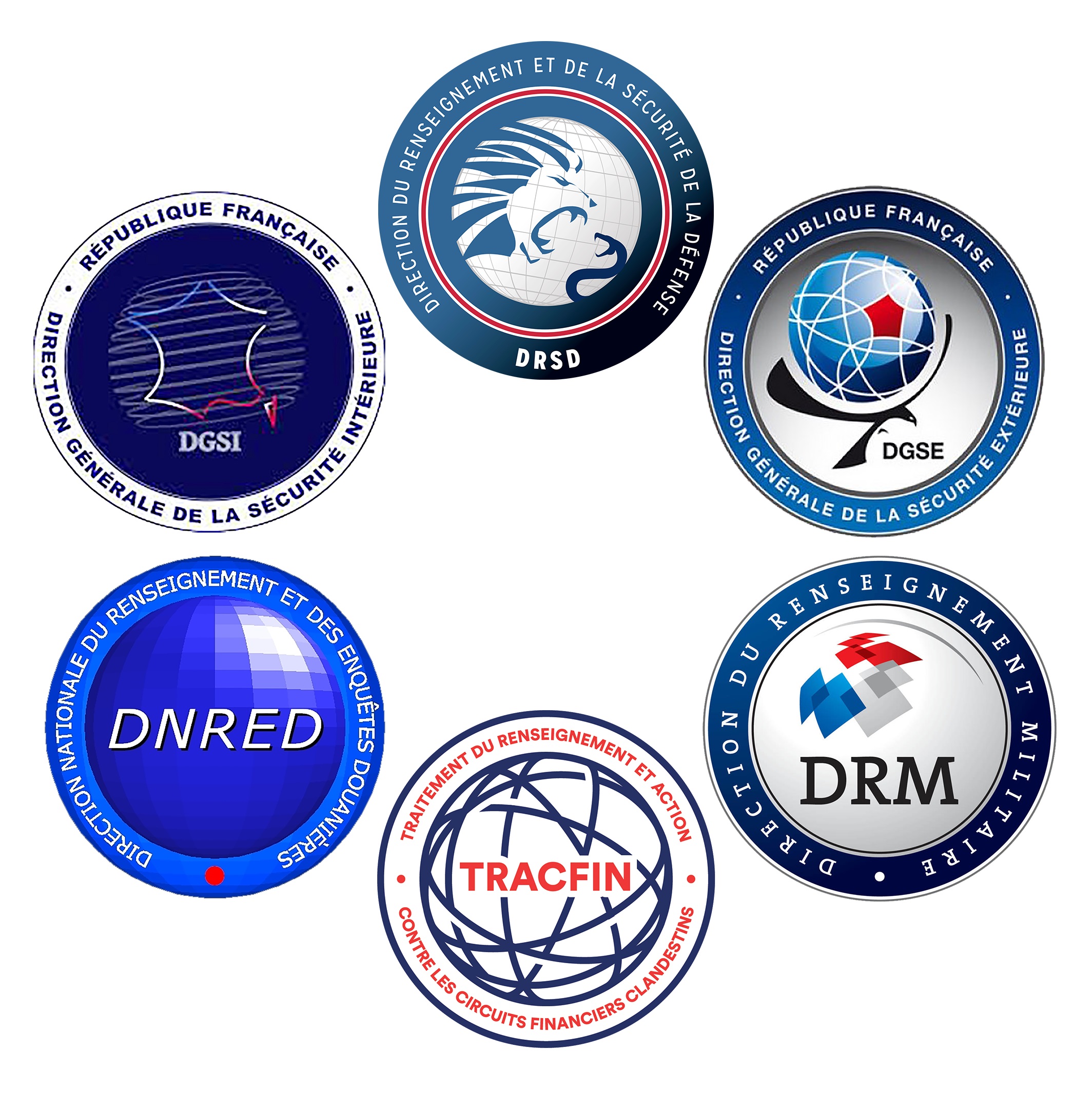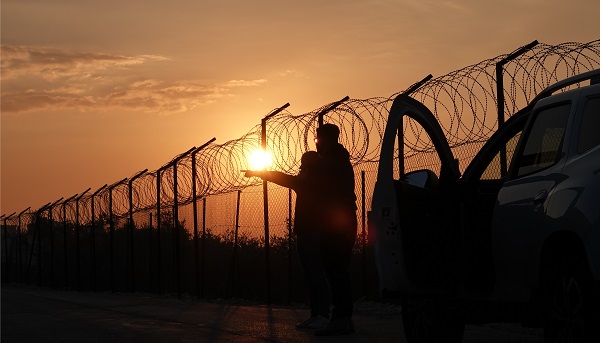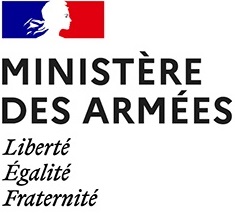The Armed Forces Ministry’s intelligence service
The Defence Intelligence and Security Directorate (DRSD) is “the service placed at the disposal of the Armed Forces Minister to exercise his/her responsibilities for the security of the personnel, information, equipment and sensitive sites”, as stated in Article D3126 of the Defence Code. In other words, the hard-core of the DRSD’s mission is counter-intelligence in the Defence sphere. Its motto is: providing intelligence to protect.

The DRSD is one of the six services belonging to the first circle of the intelligence community. It is made up of the DGSE (Directorate-General for External Security), the DGSI (Directorate-General for Internal Security), the DRM (Military Intelligence Directorate), the DNRED (National Directorate for Intelligence and Customs Investigations) and TRACFIN (Intelligence processing and action against underground financial circuits). Owing to this, the DRSD is allowed to implement all the intelligence techniques regulated by the Law on Intelligence dated July 2015.
The DRSD directly helps with the decision-making of the major military, civilian and political authorities.
A wide and well-defined area of action
The “Defence sphere” is the one and only area of action of our service. The Defence sphere comprises the personnel, items of information, equipment and sensitive sites placed under the authority of the Armed Forces Ministry, as well as those bodies linked to them or being of interest to the Ministry. The military units, stakeholders of the economic sector (companies, start-ups…), research institutes, associations and organisations of interest to Defence or linked to it are part of the exclusivity area of the DRSD.
The mission of the DRSD is to implement counter-intelligence and protection measures to ensure the security of this Defence sphere, which directly participates in the security of national defence.
A key positioning
At Ministry- and interdepartmental levels
The DRSD has a seat with the other intelligence services at the CNRLT (National Centre for Intelligence and Counter-Terrorism).
The DRSD is directly subordinated to the Armed Forces Minister. It has relations with the services, the other departments of the Armed Forces Ministry and the other ministries.
The DRSD is a key stakeholder of intelligence and economic security within the Defence industrial sphere. Along the same line, the DRSD works with other institutional actors in the cyber domain.

On the national territory and abroad
The DRSD collects, analyses and disseminates counter-intelligence data permitting to inform the Ministry’s authorities regarding potential threats likely to jeopardise the interests of Defence in France.
In order to do that, it has a very dense presence on the territory, close to the forces and the companies linked to Defence. Abroad, standing positions or counter-intelligence detachments enable to fulfil the force protection mission.
Finally, the DRSD has tight co-operation relations with many of its foreign counterparts.
The missions of the DRSD
One mission: Defence counter-intelligence
The DRSD is one of the six French intelligence services of the first circle. To do that, it has all the intelligence techniques and counters, through its modernisation, the constant evolution of the threat. The DRSD acts in a specific framework: counter-intelligence to fight against interference.
An interference is a hostile action aimed at undermining, with other means than direct military confrontation, the fundamental interests of the Nation, national defence and Defence secrets. Counter-intelligence is aimed at detecting opposing intents through the identification and neutralisation of any threat that might lead organisations, groups or isolated individuals to commit hostile actions. In that case, the mission of the DRSD is to provide intelligence on the vulnerabilities of, and internal and external threats against, the Defence sphere (personnel, equipment, information and sites) and to participate in the protection and blocking measures.
This mission is subdivided into two domains :
- force counter-intelligence,
- economic counter-intelligence.
Cyber defence is transversely integrated in both domains.
The threats against Defence are analysed following the so-called TESSCo grid (standing for Terrorism, Espionage, Sabotage, Subversion and Organised crime. The cyber threats are also taken into account. In the Defence sphere, the DRSD carries out missions similar to those of the other intelligence services.
Force counter-intelligence
 Within the Defence scope, both on the national territory and abroad, force counter-intelligence is in charge of the identification of the threats linked to terrorism, espionage, subversion and organised crime focusing on the ministry. Our service assesses beforehand the vulnerabilities of the considered deployed set ups and units, and advises the commanders on the prevention measures to implement in order to mitigate them.
Within the Defence scope, both on the national territory and abroad, force counter-intelligence is in charge of the identification of the threats linked to terrorism, espionage, subversion and organised crime focusing on the ministry. Our service assesses beforehand the vulnerabilities of the considered deployed set ups and units, and advises the commanders on the prevention measures to implement in order to mitigate them.
Force counter-intelligence focuses on Defence personnel (both military and civilians), on their environment and on the threat which might be directed at them. It participates in their security and in the blocking measures necessary to protect them, owing to the use of sensors (humans and/or technical ones), the processing and analysis of the collected elements and the information given to commanders and to the intelligence community. It also tries to detect and counter any external threat likely to undermine the institution.
It thus participates in the autonomous situational assessment by the political and military authorities, and works on a daily basis with French and foreign partner services.
Economic counter-intelligence
 In the economic counter-intelligence domain, the DRSD works daily to fight against multiple threats.
In the economic counter-intelligence domain, the DRSD works daily to fight against multiple threats.
Economic warfare is real: foreign funds taking control of companies, inveiglement of know-how, theft of information and classified material, cyber attacks, accepted or non-accepted intrusions, sabotaging of equipment or infrastructure, social engineering, harming the reputation of companies, intentional misuse of dual-purpose (civilian and military) goods by stakeholders of proliferation, embezzlements, conflicts of interest, offences against the regulation and unlawful activities linked to arms trade are so many examples of threats which might jeopardise the Defence industry.
As it works in an interdepartmental and inter-service framework, the area of action of the DRSD covers the industries and research institutes working with the Defence sector.
The mission of our organisation is to detect and neutralise any threat against national interests, national sovereignty and the scientific and technical potential of the Nation. These threats stem from the – legal or illegal – activities of various stakeholders working for external interests. They might impact the national defence secret, the Nation’s scientific or technical potential, the interests or the physical and non-physical properties of the companies or entities working with Defence.
The point is hence to protect the technologies of French companies and to preserve their competitiveness in an increasingly competitive economic environment. In fine, through its action, the DRSD participates in the preservation of the operational capabilities.
La contre-ingérence cyber
 As a transverse domain, the cyberspace is a strategic environment in which the DRSD carries out counter-intelligence actions.
As a transverse domain, the cyberspace is a strategic environment in which the DRSD carries out counter-intelligence actions.
In that domain, the DRSD identifies the vulnerabilities and threats likely to hurt sensitive individuals, equipment and information of the ministry. It privileges anticipation and relies on its own assets. It works in partnership with other institutional stakeholders.
It besides contributes to computer warfare by participating in the protection of the ministry’s and Defence industry’s information systems. These missions can be:
- preventative: awareness sessions, inspections, warnings;
- healing: analysis of the cyber-attacks, supporting the curative measures and controlling the resumption of activities.
Protection of the secret
The intelligence service in charge, among others, of the protection of Defence secrets.
Complying with the Defence code: “the service placed at the disposal of the Armed Forces Minister to exercise his/her responsibilities for the security of the personnel, information, equipment and sensitive sites”.
The DRSD’s mission is, de facto, to control the protection of the secrets of national defence. It consists in classified items of information or supports. These classified items of information or supports are held by both military and civilian entities.
For this key mission to protect France’s sovereignty, the DRSD advises, orients and controls the entities and individuals likely to hold or have access to classified items of information or supports.
Checking the compliance is done on-site and on file for the entities of the Armed Forces Ministry and for the companies which have signed a contract with them and which could have access to classified items of information or supports or could own such items or supports in the framework of these contracts.
To be granted access to these secret items or supports, the contract signed with the company must comprise an annex about security, stating the safety requirements. The prerequisite for the signature of a contract is the clearance granted to the company. The DRSD checks the compliance with those requirements and gives technical opinions regarding the physical or computer capabilities permitting the storage of classified documents.
The study of the risks linked to the internal threat is done through administrative investigations the aim of which is, among others, to detect potential vulnerabilities. The result of these investigations is to disclose to the clearance-awarding authority the objective items of information that should help determine the trust to be granted to a physical or legal person having access to, or owning classified items of information or supports.
The DRSD is an investigating service. It is in charge of investigations about individuals before a security clearance is awarded to the latter. Its conclusions consist in a security opinion transmitted to the clearance-awarding authority. The investigating service can suggest protection measures to the clearance-awarding authority when an internal threat is identified and when the level of risk is deemed acceptable.
